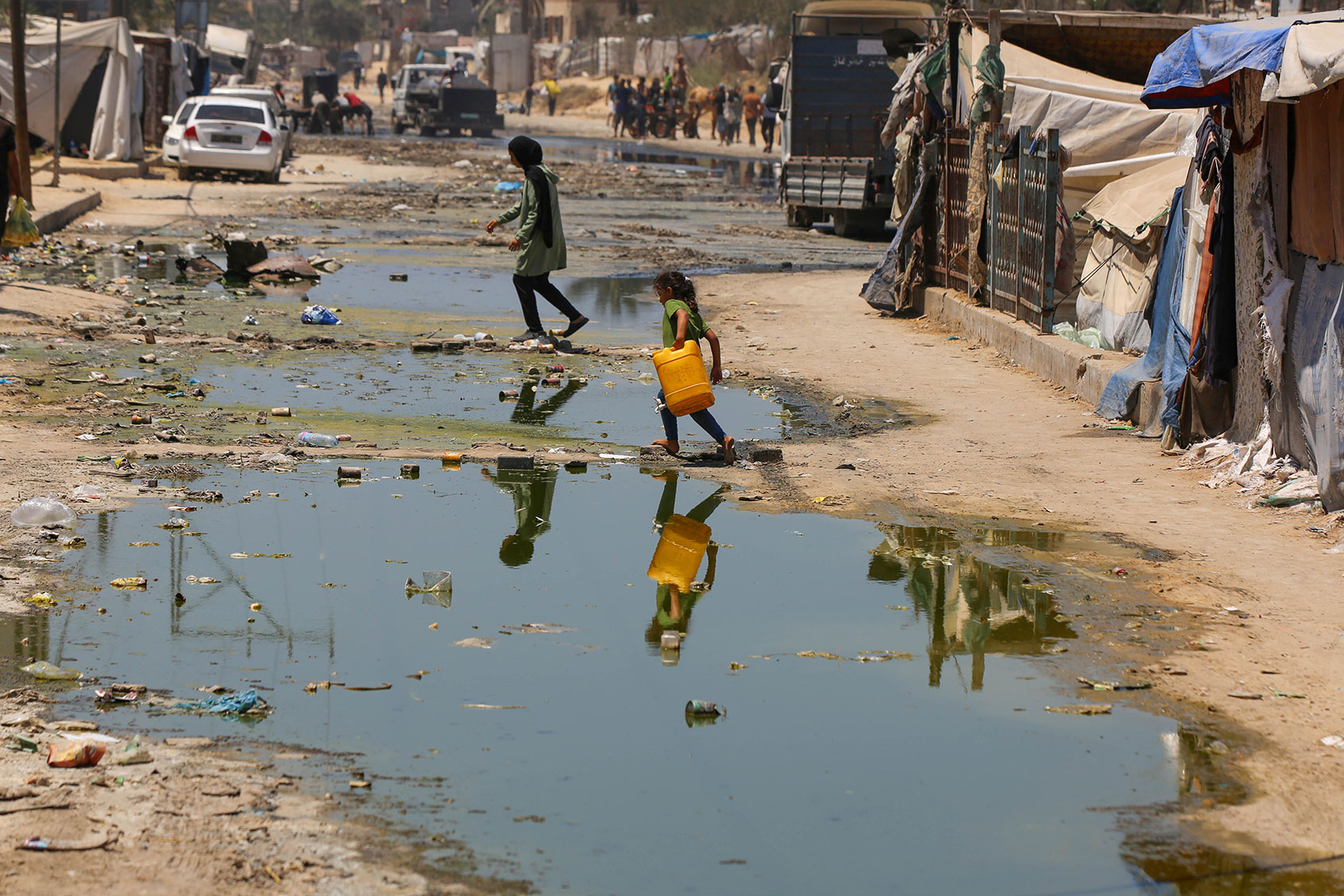Gaza's Ministry of Health announced on Friday that a deadly virus, component poliovirus type 2, was discovered by local scientists in Deir al-Balah's wastewater. Deir al-Balah is one of the largest cities in Gaza. In the aftermath of Israel's war against Gaza, more than 700,000 Palestinians are seeking shelter in the beleaguered region. Now the virus threatens to unleash a public health crisis on top of the existing strain from famine and other diseases.
The virus' presence is a "ticking time bomb," pediatric intensive care physician Dr. Tanya Haj-Hassan told Al Jazeera. “Normally if you have a case of polio, you’re going to isolate them, you’re going to make sure that they use a bathroom that nobody else uses, make sure that they’re not in close proximity to other people, [but] that’s impossible" as the region struggles under a military assault, Taj-Hassan explained.
She added, "You have everybody clustering in refugee camps at the moment without vaccines for at least the past nine months, including children who would otherwise have been vaccinated for polio and adults who, in the setting of an outbreak, should receive a booster, including healthcare workers."
Last Tuesday Deir al-Balah's wastewater pumping stations stopped working because they ran out of fuel, due to Israel's ongoing blockade of the region; Palestinians there have had no electricity supplies since Oct. 7th. In a statement, city officials said that “roads will be flooded by wastewater” and “diseases will spread" as a result of the wastewater pumping stations becoming non-operational.
“Nineteen pits and two large reservoirs are unusable in Deir al-Balah,” Ismail Sarsour, an official with the city’s emergency committee, said prior to the release of the statement.


